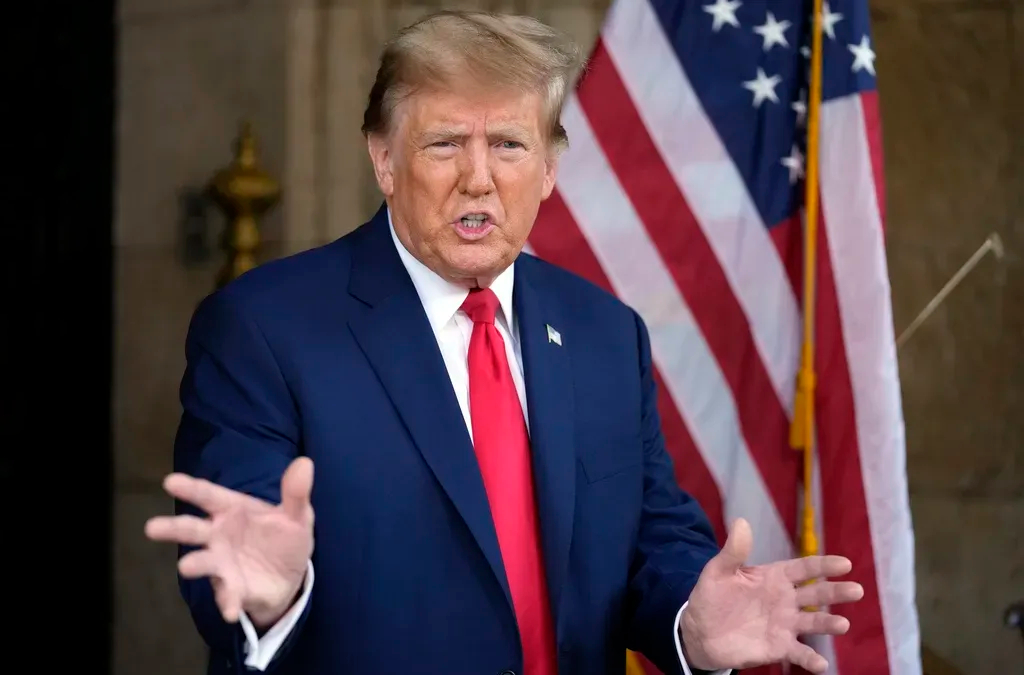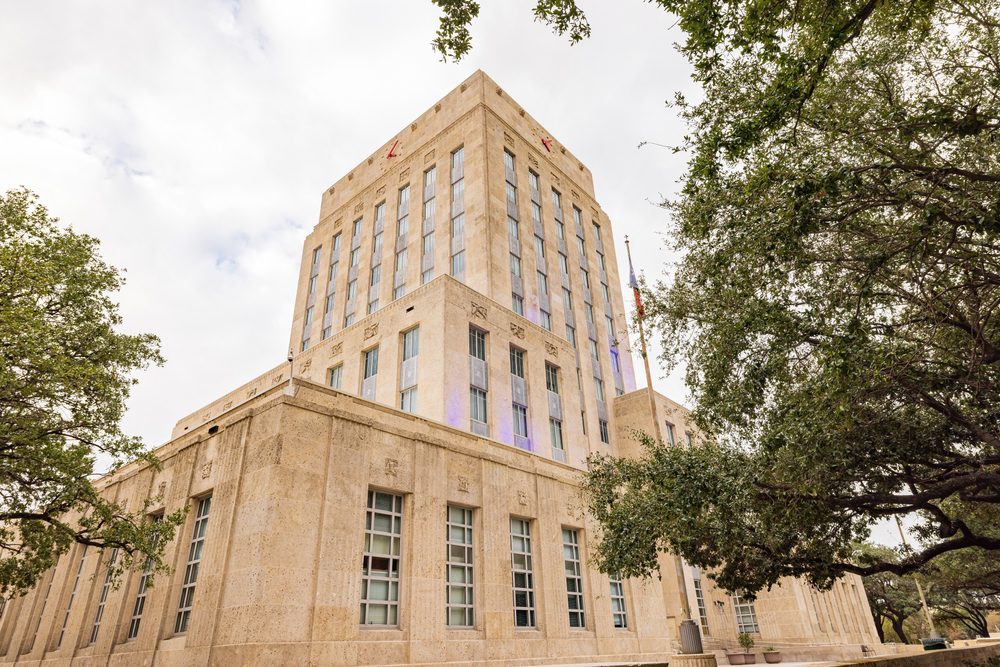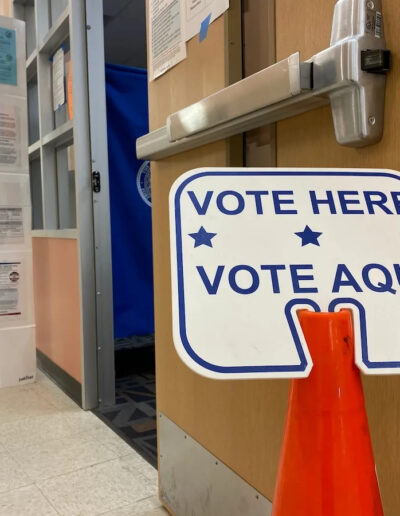
House and Senate Republicans this week killed a bipartisan border agreement that included many of their long-sought policies after Donald Trump demanded they do so, a move meant to deny President Joe Biden a deal and maintain the border as a political issue heading into the 2024 presidential election.
On Sunday, Sen. James Lankford (R-Oklahoma), Sen. Chris Murphy (D-Connecticut), and Sen. Kyrsten Sinema (I-Arizona), along with top Biden administration officials, released the bipartisan immigration agreement after Republican lawmakers demanded restrictions to US asylum law and border reforms in exchange for providing additional aid to Ukraine.
Within hours of the bill’s release, House Republicans made it clear they would oppose the deal and Senate Republicans followed suit, abandoning their own demands in order to appease Trump and avoid his ire.
“Sunday morning, there was a real crisis at the border. Monday morning, that crisis magically disappeared,” Sen. Sinema said. “It turns out border security is not actually a risk to our national security. It’s just a talking point for the election.”
Senate Majority Leader Chuck Schumer (D-New York) also blasted the Republican reversal.
“Within 24 hours of releasing the long-awaited bipartisan compromise that our Republican colleagues demanded as a condition to move Ukraine forward, Leader McConnell and the Republican conference did a 180-degree reversal,” Schumer said in a statement released Tuesday. “They were quaking at the knees at the fear of Donald Trump.”
In addition to providing extra aid to Ukraine—the deal would have provided aid to Israel and Taiwan.
Although the deal would have represented America’s harshest border policy reform in decades and was endorsed by the National Border Patrol Council, Trump and a group of House Republicans had been plotting to kill the deal for weeks.
The former president repeatedly took to his social media platform Truth Social in recent weeks to pressure Republicans to block the deal, calling the compromise “meaningless” and a “death wish.” He also privately pressured Republicans to defeat the agreement and has bragged about his efforts to kill the deal.
Trump’s aggressive opposition to the bill had a huge influence over Republicans.
Senate Minority Leader Mitch McConnell (R-Kentucky) told members of his caucus in the Senate late last month that the politics on the deal had “changed” because of the former president’s renewed efforts to make immigration the main issue of his 2024 presidential campaign.
Trump isn’t the only Republican whose opposition to the deal stems from a desire to exploit the border as an ongoing political issue. Rep. Troy Nehls (R-Texas) also said the quiet part out loud last month when he admitted he’d kill the border deal if it would help Biden.
“Let me tell you, I’m not willing to do too damn much right now to help a Democrat and to help Joe Biden’s approval rating,” he told CNN.
Ahead of the bill’s release, Republican House Speaker Mike Johnson (R-Louisiana) also told Senate members the deal would be “dead on arrival” in the House, despite the fact that he called the border the “top priority” just weeks ago.
Other Republicans also stressed the importance of securing the southern border just weeks before killing it.
Rep. Elise Stefanik (R-N.Y.) said in early January that the border was Republicans’ “top priority” and that they would “stand up” for voters of both parties on the border. In December, House Majority Whip Tom Emmer (R-Minn.) called addressing the border “the right thing to do” and emphasized making sure “people that want to come here for the right reasons are able to come here.” Rep. Michael McCaul (R-Texas) called the border a “very urgent problem” that “can’t wait a year” not two weeks ago.
Weeks later, they all publicly denounced the bill.
“MAGA Republicans are blocking what would be the toughest and fairest reforms in decades to secure the border – all because Donald Trump told them to,” President Biden said in a statement released Tuesday. “Make no mistake, after years of talk, Trump’s MAGA friends are refusing to secure the border because they all think it helps Trump politically. This is exactly who Donald Trump is: always looking out for himself and not the American people.”
The president also noted several instances where Trump himself called on Congress to secure the border, highlighting that the real problem for the former president is the fact that Biden would get credit for this deal.
In 2019, Trump asked Congress to “close border security loopholes” and to “finally, after all of these decades, secure our border.” A year prior, he told lawmakers to “close the legal gaps in America’s defenses.” In both 2018 and 2019, Trump shut down the government over Democrats’ refusal to fund his border wall.
If enacted, the deal would have:
- given the president the ability to pause asylum law by rejecting migrants when border crossings reached certain thresholds;
- created a new asylum review process designed to speed up decisions on applications;
- funded the hiring of additional border agents and asylum officers, as well as reimbursement to cities and organizations housing migrants;
- expanded legal immigration levels for immigrants sponsored by American families or by their employers;
- offered permanent residency to the tens of thousands of Afghan immigrants that were brought to the US after the fall on Kabul in 2021;
- offered work permits and deportation protections to the children of certain visa holders; and
- allocated funding for lawyers to represent unaccompanied migrant children 13 or younger.
But with the deal dead, Schumer on Thursday moved forward with a vote on the foreign aid elements of the bill, which passed the Senate in a 67-32 vote. The bill faces shaky odds in the Republican-controlled House, which includes more far-right lawmakers opposed to providing additional aid to Ukraine and which has been subsumed by chaos for months.
That chaos reached near-comical proportions on Tuesday, as Republicans failed to gather enough votes from their own caucus to impeach Homeland Security Secretary Alejandro Mayorkas over his border policy, a process that had been months in the making.




















